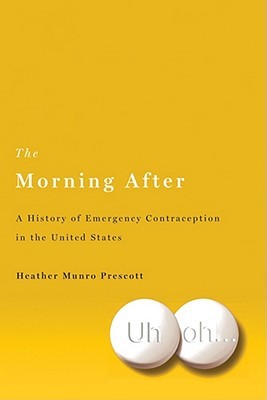
- We will send in 10–14 business days.
- Author: Heather Munro Prescott
- Publisher: Rutgers University Press
- ISBN-10: 0813551625
- ISBN-13: 9780813551623
- Format: 15.5 x 23.1 x 1.8 cm, hardcover
- Language: English
- SAVE -10% with code: EXTRA
Reviews
Description
Since 2006, when the "morning-after pill" Plan B was first sold over the counter, sales of emergency contraceptives have soared, becoming an $80-million industry in the United States and throughout the Western world. But emergency contraception is nothing new. It has a long and often contentious history as the subject of clashes not only between medical researchers and religious groups, but also between different factions of feminist health advocates.
The Morning After tells the story of emergency contraception in America from the 1960s to the present day and, more importantly, it tells the story of the women who have used it. Side-stepping simplistic readings of these women as either radical feminist trailblazers or guinea pigs for the pharmaceutical industry, medical historian Heather Munro Prescott offers a portrait of how ordinary women participated in the development and popularization of emergency contraception, bringing a groundbreaking technology into the mainstream with the potential to alter radically reproductive health practices.
EXTRA 10 % discount with code: EXTRA
The promotion ends in 17d.14:17:54
The discount code is valid when purchasing from 10 €. Discounts do not stack.
- Author: Heather Munro Prescott
- Publisher: Rutgers University Press
- ISBN-10: 0813551625
- ISBN-13: 9780813551623
- Format: 15.5 x 23.1 x 1.8 cm, hardcover
- Language: English English
Since 2006, when the "morning-after pill" Plan B was first sold over the counter, sales of emergency contraceptives have soared, becoming an $80-million industry in the United States and throughout the Western world. But emergency contraception is nothing new. It has a long and often contentious history as the subject of clashes not only between medical researchers and religious groups, but also between different factions of feminist health advocates.
The Morning After tells the story of emergency contraception in America from the 1960s to the present day and, more importantly, it tells the story of the women who have used it. Side-stepping simplistic readings of these women as either radical feminist trailblazers or guinea pigs for the pharmaceutical industry, medical historian Heather Munro Prescott offers a portrait of how ordinary women participated in the development and popularization of emergency contraception, bringing a groundbreaking technology into the mainstream with the potential to alter radically reproductive health practices.


Reviews